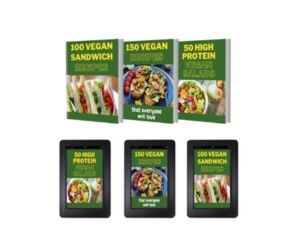Vegetarian vs pescatarian diet; Aspects, Pros & Cons
| Aspect | Vegetarian Diet | Pescatarian Diet |
|---|---|---|
| Major difference | Excludes meat and fish. | Excludes meat but includes fish and seafood. |
| Protein Sources | Legumes, tofu, tempeh, seitan, dairy, eggs, nuts. | Legumes, tofu, tempeh, seitan, dairy, eggs, fish, seafood. |
| Omega-3 Fatty Acids | Plant-based sources like flaxseeds, chia seeds, walnuts. | Rich in omega-3 from fish and seafood. |
| Iron Sources | Legumes, tofu, tempeh, whole grains, nuts, seeds. | Legumes, tofu, tempeh, whole grains, nuts, seeds, fish. |
| Vitamin B12 Sources | Fortified foods, dairy, eggs. | Fortified foods, dairy, eggs, fish. |
| Zinc Sources | Legumes, whole grains, nuts, seeds, dairy, eggs. | Legumes, whole grains, nuts, seeds, dairy, eggs, fish. |
| Environmental Impact | Reduced carbon footprint due to the exclusion of meat and fish. | Less environmental impact compared to omnivorous diet. |
| Health Benefits | Lower risk of heart disease, high blood pressure, obesity. | Similar benefits as vegetarian diet, plus omega-3 fatty acids. |
| Considerations | May need to pay attention to protein, iron, and vitamin B12 intake. | Need to ensure sustainable and responsibly sourced fish and seafood. |
| Popular Subcategories | Lacto-vegetarian (includes dairy), ovo-vegetarian (includes eggs), vegan (excludes all animal products). | No specific subcategories. |
Want to Cook Ridiculously Tasty Vegan Recipes From Scratch But Have No Idea Where To Start?
Grab your 300 Vegan/Plant Based Recipe Cook Book (CLICK THE LINK BELOW)

Vegetarian vs pescatarian diet Pros & cons
| Pros/Cons | Vegetarian Diet | Pescatarian Diet |
| Pros | 1. Health benefits: Lower risk of heart disease, high blood pressure, obesity, and certain cancers. | 1. Health benefits: Similar to vegetarian diet, plus additional omega-3 fatty acids from fish. |
| 2. Environmental impact: Lower carbon footprint and reduced resource consumption. | 2. Environmental impact: Less environmental impact compared to an omnivorous diet. | |
| 3. Increased intake of fruits and vegetables, providing essential vitamins and minerals. | 3. Increased intake of fruits, vegetables, and seafood, which are rich in nutrients. | |
| 4. Potential weight management due to a focus on plant-based, low-calorie foods. | 4. Potential weight management due to a higher intake of lean protein from fish. | |
| Cons | 1. Potential nutrient deficiencies (protein, iron, vitamin B12, zinc) if not adequately planned. | 1. Sustainability concerns: Ensuring fish and seafood are sourced responsibly and sustainably. |
| 2. Limited food choices in certain social settings or when dining out. | 2. Potential exposure to environmental pollutants and heavy metals from fish consumption. | |
| 3. Higher reliance on processed vegetarian products may lead to increased sodium and additives intake. | 3. Cost considerations: Fish and seafood can be more expensive compared to plant-based protein sources. | |
| 4. Need for meal planning to ensure balanced nutrient intake. | 4. Personal preferences or ethical concerns regarding the consumption of seafood. |
Please note that individual variations may exist within each diet, as some people may choose to include or exclude certain foods based on personal preferences, health conditions, or ethical considerations. It’s important to consult with a healthcare professional or registered dietitian to determine the best approach for your specific dietary needs.
Related:
- 12 Lacto-Ovo Vegetarian Benefits
- Lacto-Ovo Vegetarian Vs Vegetarian; The Difference In What You Eat
- Alkaline Vegan Diet by Dr. Sebi: Food list, Pros & Cons
- Are Vegetarians Healthier Than Meat Eaters?
- Vegetarian Workout Meals to stay Active
- How to start a plant based diet for weight loss?
- What is the Best Vegetarian Diet Plan to Reduce Belly Fat?
- 9 Vegan protein sources
Conclusion
In conclusion, before starting following the diet you should be aware of the pescatarian diet deficiencies to make sure a well-rounded and balanced diet. While the pescatarian diet offers additional nutrients through fish and seafood, individuals should be mindful of sustainability, potential contaminants, and make informed choices.
Consulting with a healthcare professional or registered dietitian can provide personalized guidance and support to address any specific dietary concerns and ensure optimal nutrient intake.
